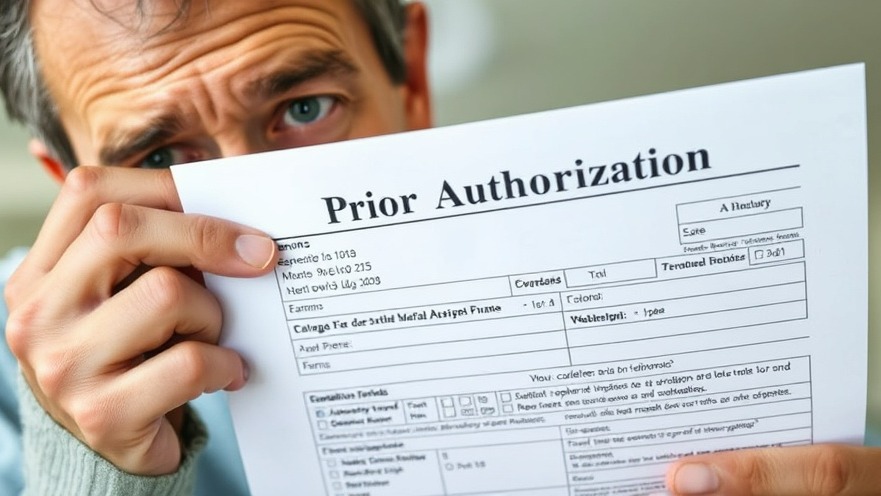
Understanding the Impact of Prior Authorization Delays on Patient Outcomes
The increasingly cumbersome process of prior authorization (PA) in the U.S. healthcare system is sparking serious concern among physicians and patients alike. A recent survey by DrFirst sheds light on the distressing reality for many patients who encounter these bureaucratic hurdles when seeking necessary medications. As concierge medical practice owners, understanding these challenges is crucial not only for patient care but also for enhancing your practice's efficiency and reputation.
The Human Cost of Delays
According to the DrFirst survey, over a third of patients reported that their health deteriorated while awaiting PA approval. The burden is especially evident among patients managing chronic diseases, where every day can make a significant difference. Alarmingly, 9% of respondents went without their prescribed medications due to PA denials. For concierge practices, this highlights a critical gap in patient care that can lead to dissatisfaction and lower adherence, potentially harming your practice’s credibility and patient trust.
The Role of AI in Mitigating Delays
Amidst the frustration surrounding PAs, there is a silver lining: patients are increasingly open to the idea of integrating artificial intelligence (AI) into the healthcare process. Utilizing AI can streamline the cumbersome PA procedures, reducing waiting times and improving patient outcomes. For practice owners aiming to stay at the forefront, adopting AI-driven solutions can serve not just as a technological upgrade but as a significant competitive advantage in a crowded market.
Financial Implications of Delays
Prior authorization doesn’t just affect patients—its impact ripples into the financial realms of medical practices. Increased delays lead to lower treatment adherence rates, which can result in higher long-term costs for both patients and practices due to complications requiring additional treatment. As business owners, thinking strategically about how to mitigate these delays not only improves patient health outcomes but can also significantly enhance your practice's financial viability.
What Patients and Physicians Want
In addition to streamlining procedures through technology, transparency in the PA process has become pivotal. Patients are increasingly expressing their desire for clear communication and updates regarding their medication authorizations. For concierge practices, this means that fostering open lines of communication can heighten patient engagement and loyalty, setting your practice apart in a competitive environment.
The Future of Prior Authorization
As the healthcare landscape continues to evolve, so too must our approaches to prior authorization. Solutions leveraging digital tools and AI are becoming essential components in streamlining PA processes. However, embracing these advances requires commitment from not just individual practices but also a collective push towards reforming the current regulatory frameworks that govern PA.
Ultimately, understanding these dynamics is integral to securing your role as a leader in concierge medicine and improving both patient outcomes and operational efficiency. Implementing AI solutions and enhancing communication can position your practice as a beacon of innovation and patient care in today's healthcare market.
Call to Action
As a concierge medical practice owner, it’s time to take action. Evaluate how your practice can incorporate AI technologies and enhance communication strategies regarding prior authorizations. By prioritizing these changes, you not only improve your efficiency but also cement your status as a leading practice in patient care.
 Add Row
Add Row  Add
Add 




Write A Comment